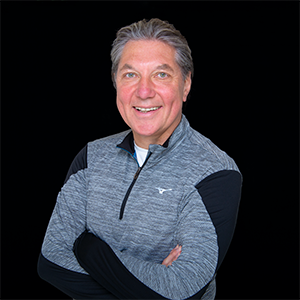Philip Hodges: Pure Maths - Guiide

What degree course did you study and when did you graduate?
Pure Maths graduating in 1983.
Why did you choose that particular degree course?
A pure maths degree and Warwick was heavily recommended by my tutors in VI form. Some were among the earliest intake to the maths school created by Prof. Zeeman. Computers and technology was the career destination in mind (I already had an industrial sponsorship) and the degree was flexible allowing you to take studies across Computer Science, Physics, Engineering and even Languages.
Tell us about your employer
After a long career in financial services with companies like Prudential and KPMG, I now run my own FinTech business. Only launched in 2020 we are the most visited consumer site for people looking for help with their retirement and have many financial service companies adopting our platform.
What was the position you were recruited for. Please briefly outline the position you were recruited to within your organisation and summarise the business needs and role you fulfil
In my career I have been recruited primarily where technology and financial services come together directed towards innovation and disruptive change to the market. It has only been in later years to take the leap and build my own business.
What attracted you to this position?
Launching my own business...I was fed up working for others!
What are the key skills you learnt at Warwick that have helped you with your career to date?
Learning at Warwick was not just the academic course but the social and cultural environment. The key aspects from the course were critical thinking, analysis and planning. Beyond the course, an appreciation of the arts, social engagement, creativity, exposure to a huge world and opportunities.
What has been your greatest career challenge to date and how did your experience and skills help overcome it?
Navigating organisations and managing other people. My early career was job hopping using my intellect to greater challenges and getting better paid in each job. No matter how bright you are and how technical the job, there comes a point where you need to understand how organisations behave and how they succeed. Deciding to move to a managerial position was tough because you can't learn it from a book - you have to do it, experience failure and learn from that experience.
What top tips would you give to students looking for a career in your market sector?
I entered the job market when it was commonplace to work for a large organisation and make your career through promotion. As our own children have graduated, we have steered them away from doing similar and think more about what they want from life and be masters of their own destiny. One son works for a startup (fourth in the company) and the other has been with a big consultancy and has realised he can have more direct impact and greater fulfilment swapping this for a consultancy with just six people.
What do you know now that you wish you had known when you were applying for jobs?
I had the good fortune of a head start being sponsored at university - I knew the job I was going to. I sought sponsorship in the first place having given thought to the direction I wanted to take - technology. That was as far as it went. When graduating, I would have benefited from understanding more about my personal strengths and weaknesses and how to put those to the best of use. It wasn't until mid career that I used assessment tools like Myers-Briggs to get this understanding.
Any additional advice or comments?
I would seek out mentors and people with experience in areas I want to work in. LinkedIn can be very helpful for this - you can spot the people who can help you and connect with them for advice. It may well lead to a path to find the job that would be right for you.
